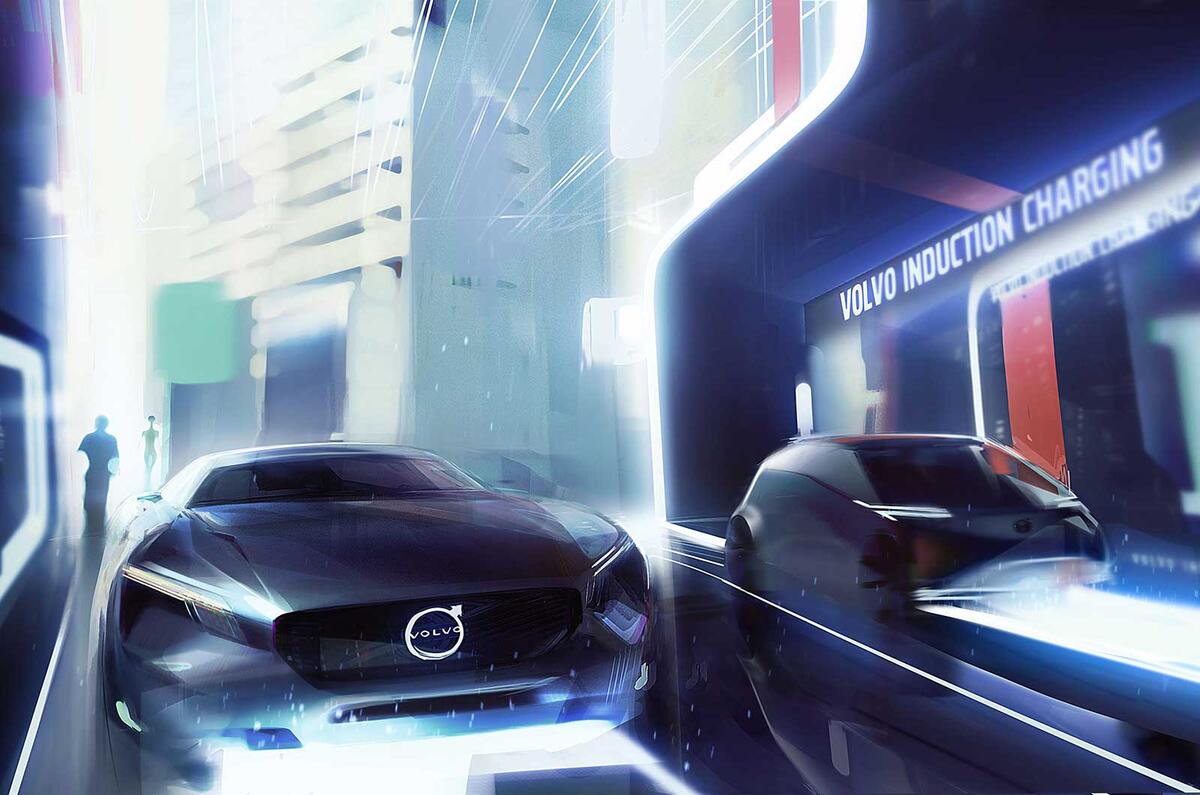Volvo will launch a mid-size battery-electric car with a range of around 325 miles by 2019.
The Tesla rival, which is likely to be an SUV rather than saloon, will be a showcase for Volvo's electrical know-how, with the firm also pledging to launch a plug-in hybrid version of every new model it launches in the next five years.
Volvo chiefs say the Tesla rival will be “a long-range car, offering premium performance and rapid charging”.
According to R&D chief Peter Mertens, the commitment to plug-in models is a result of the technology "offering customers the best combination of efficiency, range and convenience."
Volvo says its historic move follows improvements in battery technology, falling costs and wide public acceptance of electric cars. "The time has come for electric cars to cease being a niche technology and enter the mainstream," said Volvo president and CEO, Hakan Samuelsson. "We are confident that by 2020, 10% of Volvo's global sales will be electrified cars."
Volvo sees the years 2020-25 as the “period of critical acceptance” for electrified cars. The company draws an comparison between its push towards safety - it wants to eliminate deaths via accidents in its road cars by the year 2020 - and this new determination to push electrification.
The programme will start with the introduction of plug-in electric versions of Volvo's larger cars, the 60-series and 90-series models that already utilise the company's new large Scalable Platform Architecture (SPA), which was designed from the outset for electrification. The first of these models, the Volvo XC90 T8 Twin Engine all-wheel drive, has already been launched in Sweden, and will come to the UK next January.
The XC90 T8 delivers more than 407bhp and has a pure electric range of around 25 miles, while - according to current statutory NEDC test cycle - emitting just 49g/km CO2 and returning fuel consumption well over 100mpg. There will also be a plug-in version of the forthcoming Volvo S90 large saloon.
Volvo is also planning to launch a front-wheel drive Twin Engine powertrain set-up, so that plug-in hybrids which don't need it, need not have the complexity and weight disadvantages of four-wheel drive. Later, an "entirely new" range of 40-series Volvos, using the Geely-Volvo Compact Modular Architecture (CMA) platform, will hit the market, all offering plug-in hybrid versions.
The CMA platform, which comes on stream from 2017, is critical to Volvo's plan to raise its sales to 800,000 cars a year by 2020, and to replace every model in its range over the next four years. Mertens says the flexibility of CMA will allow the company to offer buyers "the same type of premium engineering benefits as owners of larger cars".


















Join the debate
Add your comment
I didn't realise that
I should also say that all
I dont see Volvo taking credit for anything...
The next leaf hitting 200 miles, the Tesla model 3, what Elon Musk says all confirm what Volvo are saying in this article. That electrification will come into play as a seriously competitive technology in the next 3 years. Tesla, Volvo, et all arent the first originators of any of these technologies. Its just Tesla had the vision to package it and bring it to market faster than anyone else.
Law forces no one to buy these cars
No one buys a Tesla, Leaf or i3 because of the Law and no one said Telsa were the originators of these technologies
xxxx wrote: winniethewoo
You are right! Why won't you tell me where your salon is?